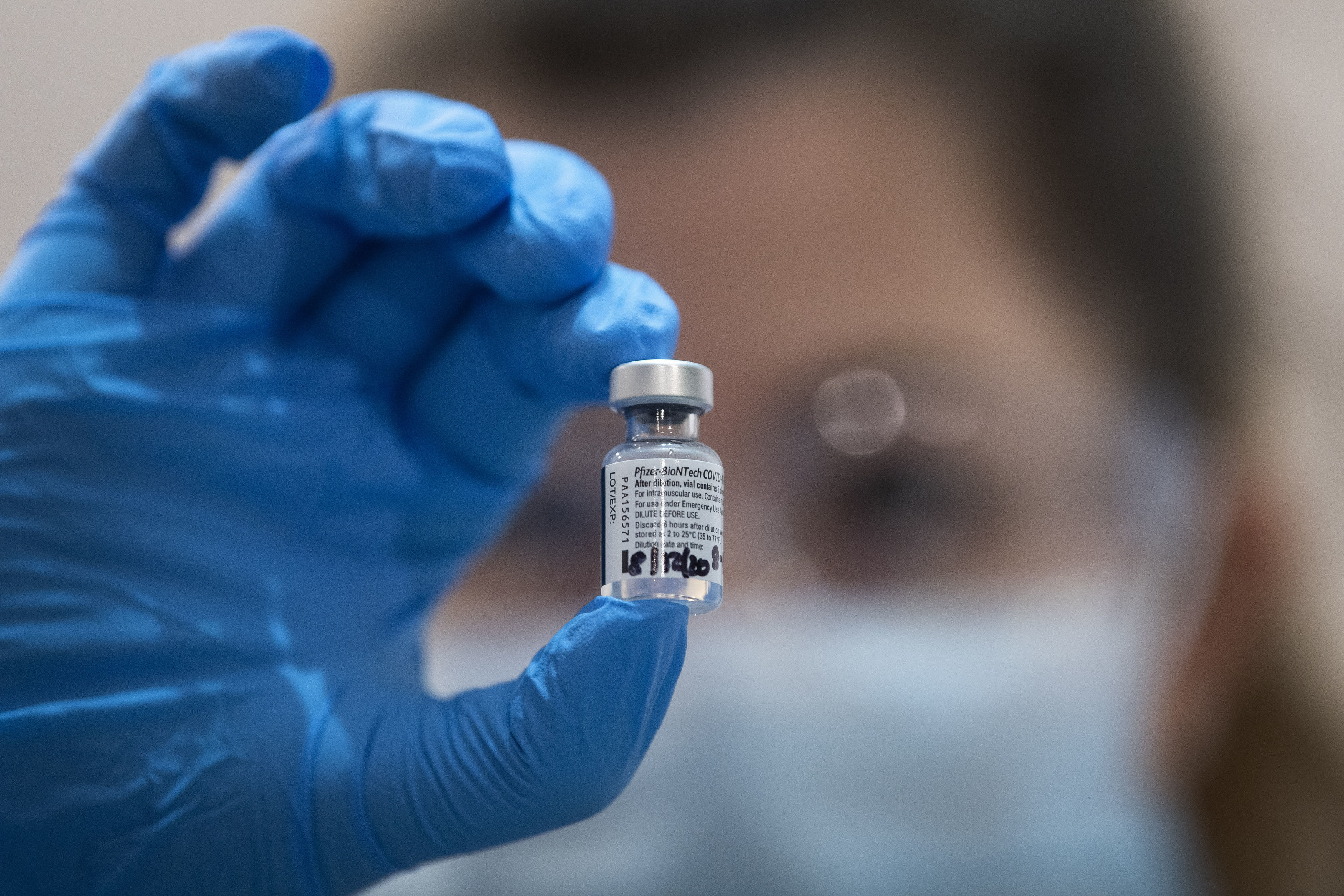After announcing over the weekend that health care workers in New Jersey will begin getting the coronavirus vaccine on Tuesday, Gov. Phil Murphy revealed Monday how the doses will be administered as COVID-19 continues to spread.
"Tomorrow is a momentous day," Murphy said at his Monday coronavirus news briefing.
The first shipments of the Pfizer coronavirus vaccine -- about 76,000 or so doses -- were received by some New Jersey facilities by Monday -- including Cooper and Atlantic Health in South Jersey, state officials said.
Murphy said the first vaccines will be administered at University Hospital in Newark. He, alongside Health Commissioner Judy Persichilli, will be at the hospital Tuesday morning for the first inoculations.
Get Philly local news, weather forecasts, sports and entertainment stories to your inbox. Sign up for NBC Philadelphia newsletters.
Murphy said other hospitals will start administering doses as well on Tuesday. About 56,000 of the first round of doses of the Pfizer vaccine will go to hospitals and around 20,000 to long-term care facilities, Persichilli said.
"As more vaccine shipments arrive, our vaccination program will become much more robust over the coming weeks," Murphy said. "Our health care workers and long-term care facility residents and staff remain our top priority for initial vaccinations."
Murphy said that the vaccine won't be mandatory for those on the front lines, but that he hopes that health care workers choose to get the vaccine of their own free will.
A nurse in New York was one of the first to get the Pfizer / BioNTech vaccine on Monday morning. Bringing optimism to a country mired in a pandemic that has claimed more than 300,000 lives.
On Monday, he reiterated that around 4.7 million New Jerseyans getting the vaccine, or around 70% of the population, is the goal for the vaccination program.
Murphy has warned that the start of inoculations will in no way lead to the end of the coronavirus any time soon. On Monday, he warned that the next six to eight weeks could be particularly hard and among the worst of the pandemic.
"The number of new infections and hospitalizations will not magically return to zero because we’re about to provide our first vaccinations," the first-term Democrat said.
He has urged people to continue to wear masks in public, wash hands and stay distanced from each other to slow the virus' spread.
After reporting another 4,805 coronavirus cases Monday, New Jersey had more than 405,000 COVID-19 cases since the start of the pandemic. Nearly 16,000 people are confirmed to have died from coronavirus-related complications, with 25 new deaths reported Monday.
More than 3,600 coronavirus patients were hospitalized as of late Sunday with more than 700 of them in intensive care units.
On Dec. 10, the positivity rate was at 10.95%.
Murphy on Monday called out young people for spreading the disease.
"The share of new infections continues to skew toward younger New Jerseyans, while the share of deaths continues to skew toward older ones," Murphy said. "You may be young and feel fine and not show a symptom, but you’re killing your parents and grandparents."



